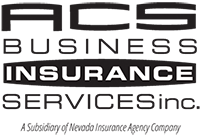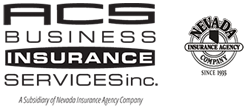Is your business compliant with ERISA?
Business Benefits and Compliance
 The SPD is an important disclosure document required by ERISA, federal legislation signed into law in 1974. The SPD tells participants what the plan provides and how it operates. It provides information on when an employee can begin to participate in the plan, how service and benefits are calculated, and how to file a claim for benefits.
The SPD is an important disclosure document required by ERISA, federal legislation signed into law in 1974. The SPD tells participants what the plan provides and how it operates. It provides information on when an employee can begin to participate in the plan, how service and benefits are calculated, and how to file a claim for benefits.
Also included in the SPD are specific provisions required by ERISA. The plan administrator is legally obligated to provide an SPD to participants, free of charge. If a plan is changed, participants must be informed, either through a revised SPD, or in a separate document, called a summary of material modifications, which also must be given to participants free of charge.
Many employers, while aware of the disclosure and reporting rules for pension benefits, are not aware of similar requirements for their group-sponsored welfare benefits.
Primary responsibilities for employers to comply with ERISA include three important items:
- Detailed disclosure to covered individuals (employees and beneficiaries).
- A strict fiduciary code of conduct on plan sponsors and administrators.
- Detailed reporting through Form 5500, if required.
What types of employers must comply with ERISA?
If an employer is offering health plan that is established by the employer for the purpose of providing one or more benefits to employees and beneficiaries, then generally, that employer would need to comply under ERISA.
A common rule of thumb is any employer with two or more employees that offers a group-sponsored health plan must comply with the ERISA notice and disclosure, and possibly, reporting requirements.
Exemptions can include organizations such as churches and government entities, and include plans maintained to comply with workers’ compensation or disability that fall under a statutory exemption status.
Examples of benefits that are subject to ERISA include the standards like group medical, dental and vision. They can also include: life/AD&D, short-term and long-term disability, health flexible spending accounts, and health reimbursement arrangements.
What are some common penalties for noncompliance for small businesses?
Here is where it really gets interesting and employers should take notice on the penalties that can apply to their business.
- Failure to provide a summary plan description (SPD) of your benefits can cost an employer up to $152 per day ($1,527 maximum per failure). Example: An employer fails to send out an SPD to their 35 employees over the last year (365 days). The employer could be liable for up to $1,527 per employee x 35 = $53,445 in penalties. Do you provide SPDs to your employees?
- Failure to file the plan’s annual report (5500 filing) could cost an employer $2,140 per day.
The biggest mistake small employers make is not providing this SPD to their employees. Many businesses confuse the insurance certificate or benefit summary from their carrier or broker as this disclosure, but it is not.
———————————————–
If you would like more information regarding Summary Plan Documents (SPD), call us today (775) 425-3233.
ACS Business Insurance Services, Inc. is an independent insurance agency and has been in providing insurance solutions to employers and individuals for over 20 years.
We specialize in employer and employee benefit solutions, individual and family insurance options and retirement and income protection. We strive to maintain our reputation for excellent service, competitive insurance coverage and long term care for our clients.
A Reno Employee Benefits Agency

